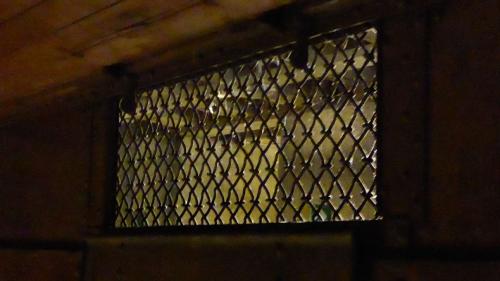Call for Papers UK Conference | The 'Holocaust by Bullets' in Literature, Film and Visual Art

Date: 18 September 2024 - 19 September 2024, 10:00AM - 6:00PM GMT | Location: Bedford Room, G37, Ground Floor, Senate House, Malet Street, London, UK | Deadline: 22 March 2024
Bestselling novels such as Jonathan Safran Foer’s Everything is Illuminated (2002, film adaptation 2005), Jonathan Littell’s Les Bienveillantes (2006, The Kindly Ones, 2009) and Katja Petrowskaja’s Vielleicht Esther (2014, Maybe Esther, 2018) have increased public and scholarly discussion of Holocaust mass shootings and their remembrance, yet remain notable exceptions to an overall scarcity of representations of these atrocities. For the most part, literary, cinematic and artistic depictions of mass shootings have been belated, schematic and often at the margins of works dealing with other themes or with other facets of the Holocaust. While specific events, such as the Babi Jar massacre of September 1941, have found their place in memory and art, many more events are still being recovered for commemoration.
In recent years, popular histories such as Father Patrick Desbois’s The Holocaust by Bullets: A Priest's Journey to Uncover the Truth Behind the Murder of 1.5 Million Jews (2008) and Timothy Snyder’s Bloodlands: Europe Between Stalin and Hitler (2010), have provided a language for speaking about mass shootings that has been taken up by artists and scholars alike. Nevertheless, the idea that mass shooting may form a category of experience, and of representation, that may benefit from separate consideration is only gradually taking hold and theorisation of the specific ethical issues associated with the representation of the so-called 'Holocaust by bullets' is likewise only beginning (Vice, 2019).
This conference will bring together scholars interested in the literary, cinematic and artistic representation of these events and their legacy in the broadest terms. Over two days of panels, this event will showcase research from different disciplines, fostering exchange between scholars working in a variety of national and linguistic contexts whilst also foregrounding the transnational circulation of memory and representation. These discussions will illuminate shared and divergent tendencies in the representation of Holocaust mass shootings, and interrogate the extent to which works dealing with this history benefit from consideration as a discrete corpus.
Those interested in presenting are invited to submit a 300-word abstract for a 20-minute paper. Topics may include but are not limited to:
- Case studies of individual texts, films or works of art
- The representation of the 'Holocaust by bullets' in (trans)national context(s)
- Barriers and limitations – why is the 'Holocaust by bullets' marginalised today?
- Processes of pre-mediation and remediation; imagery and symbols
- Highbrow/lowbrow – the place of the 'Holocaust by bullets' in genre fiction/popular entertainment
- The influence of historiography and documentary on fiction and feature films
- The limits of representation and how authors/artists/filmmakers engage with them
- Critiques of 'Western' Holocaust memory
- Linguistic boundaries and translation
- Screen memories and suppressed knowledge
- Multidirectional memory and the 'Holocaust by bullets'
- Landscape: representing (non)sites of memory (Sendyka)
- Watersheds and transitions – is the representation of the 'Holocaust by bullets' changing?
- Forgotten, untold or unheard? Problematising 'unknown histories'.
Panel proposals for 3-4 speakers are also welcome but should consider the comparative and interdisciplinary aims of the conference. The language of the conference is English. Postgraduate and early career researchers are welcome to participate. The conference will take place in person in Senate House.
To apply, please submit your title and abstract of no more than 300 words, along with a short bio and contact information to jenny.watson@ed.ac.uk by 22 March 2024. Notifications of acceptance will be sent out in early April.
Please note that it is very unlikely that any funding will be available for speakers’ travel and/or accommodation. Speakers should seek financial support from their own institutions or third parties.
Image: The Shoah Memorial, Milan. Photo: Ardfern, 2028 via Wikimedia Commons CC BY-SA 4.0
